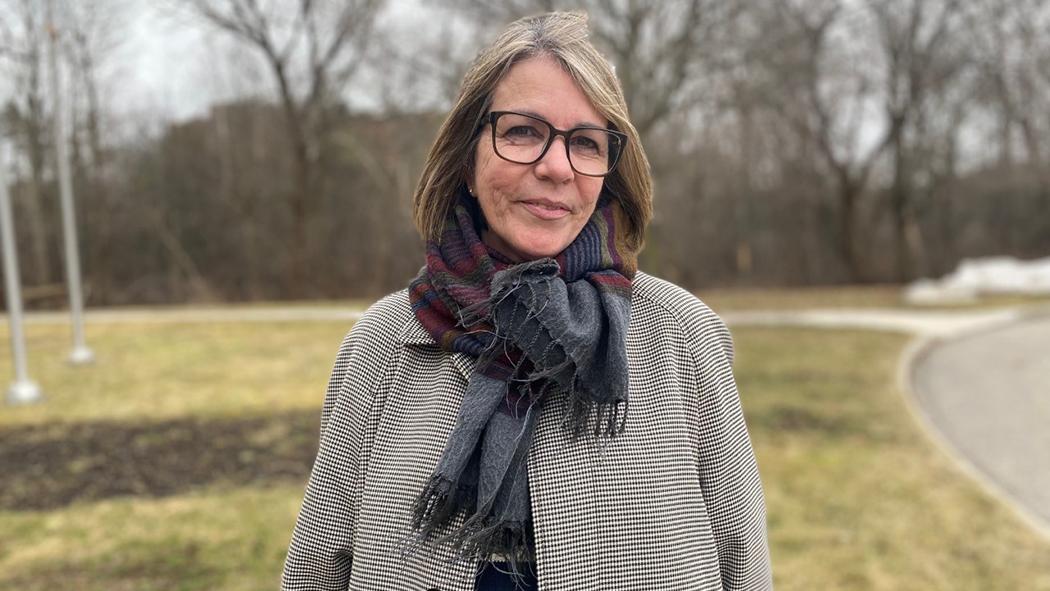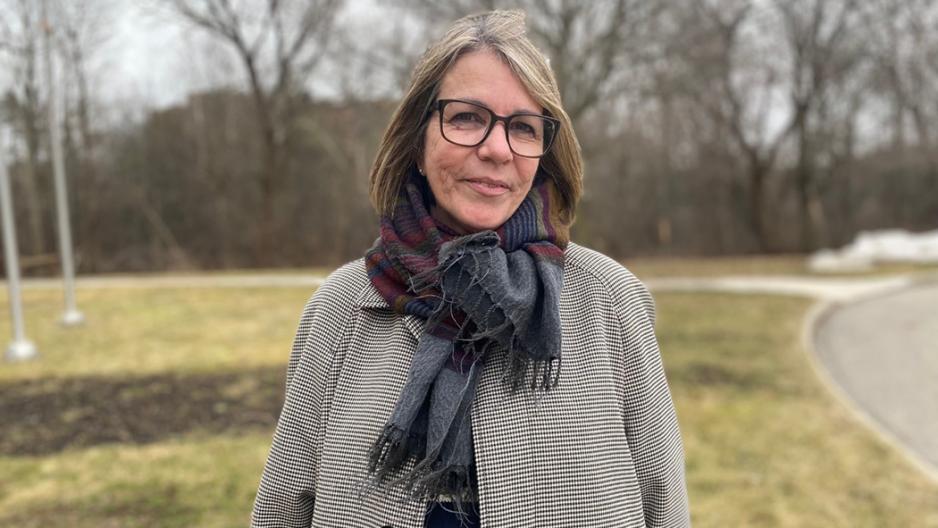
March 20, 2023
Kate Hannah has been regularly screening for colon cancer with a FIT (fecal immunochemical test) for years. Until recently, each FIT she took came back clear. However, her most recent FIT results were abnormal, and on January 13, 2023, when she had her first colonoscopy, a large polyp was removed.
Her health care team followed the large polyp protocol and told Kate she should get a second colonoscopy scheduled as soon as possible. At that second appointment, Dr. Michael Sey, Regional Endoscopy and Colon Cancer Screening Lead, SWRCP and Gastroenterologist and Therapeutic Endoscopist at LHSC, informed her she had colon cancer.
Kate’s health experiences
“I’ve been diagnosed with a few things that none of my family members have experienced,” Kate shares. “Because of that history, I approach my health proactively and get screened. When I was diagnosed, I wasn’t entirely surprised that I was the one who developed colon cancer.”
Leading up to taking her most recent FIT, Kate had no symptoms at all – she was expecting the test to come back clear like it always had before. But now, after two colonoscopies, she is going to get a CT scan and has an upcoming appointment with a surgeon.
“It’s still early on and I don’t know how I feel about it all. I don’t get too worked up about things before I know what I’m dealing with,” Kate explains. “I did have a moment of panic before my second colonoscopy, but after it was over, I felt like I got those feelings out of the way and can keep moving forward.”
The importance of cancer screening
“I told my siblings right away because Dr. Sey advised that I tell them so they can get tested since there’s a greater chance of them also developing this cancer with a family history,” Kate says.
For adults aged 50 – 74, it is important to screen for colon cancer for early detection and intervention, even if no one in their family has had the disease. As far as Kate is aware, she is the first in her family to develop this disease. She still does not have any symptoms, and thinks about what could have been if she had delayed her screening by a few years.
During her second colonoscopy, the rest of her colon was clear. “I do worry because it’s cancer, but by the same token, I am grateful for the test and optimistic about the outcomes because it was caught early.”
Next steps
Kate is still in the early stages of her colon cancer diagnosis and treatment. She is still not certain exactly what she is dealing with, but feels optimistic because her appointments are happening so quickly.
“I’m glad it’s all moving so fast, but it’s certainly a surreal experience. I am so appreciative that I’m able to get my appointments so quickly. It allows me to keep focusing on the next steps and not get caught in any spiraling thoughts,” Kate says. “I know I will process what I need to process as my cancer treatment continues, and I know that I have my family and friends to support me. Getting screened was the responsible thing to do – not only for my own health, but also for my family so they can be empowered to monitor their own health knowing their family history.”
Getting tested
Getting tested for cancer regularly is critical for early detection and treatment. Getting a FIT is easy and the test is free, painless and can be done at your home. The easiest way to get a FIT is to speak with your family doctor or nurse practitioner. If you do not have a primary care provider, you can call Health811 (formerly Health Connect Ontario and TeleHealth) by dialing 811 to get a FIT sent to your home.
If you would like to learn more about where to get screened or receive a test, please visit Cancer Care Ontario’s webpage on Screening for Colorectal Cancer.
